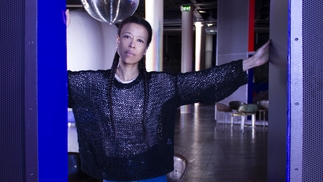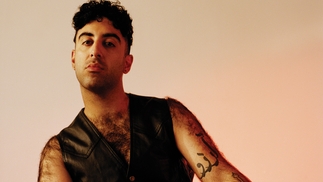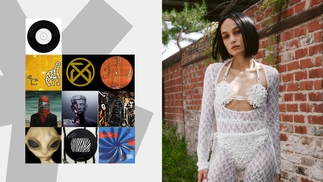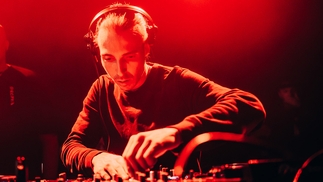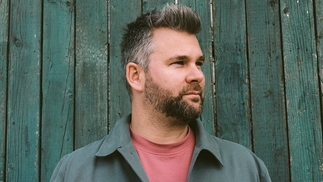On Cue: Nene H
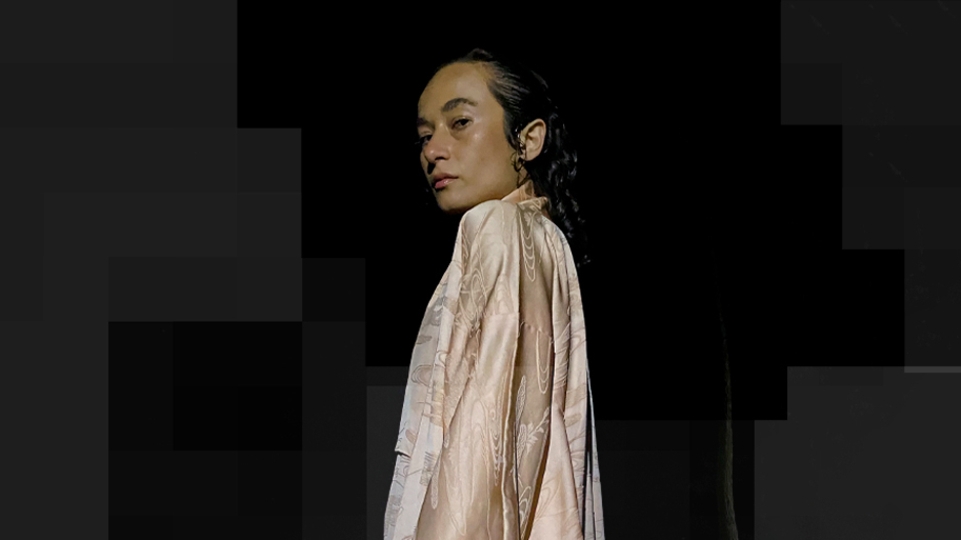
Having trained as a classical pianist as a child in Turkey, before becoming a successful techno artist in Berlin, Nene H has been on a lifelong journey to free herself of cultural and musical traditions. Alongside a high-velocity techno mix recorded for the On Cue series, she chats to Sophie McNulty about her journey so far, and how on her new album — a tribute to her late father — she’s gone full circle, putting her heritage at the core of her work
Against Berlin’s bleak grey palette, the sun is blazing through the windows of Beste Aydin’s top floor apartment. A heatwave has been sizzling in the city for days, but as the temperature drops slightly, Aydin invites us to meet indoors. “I can’t wait to see what you have for me,” she beams, perched cross-legged on a rattan vintage-style chair, with a sense of uncapped playfulness: “Let’s go for it!”
Aydin performs and makes music as Nene H. The persona is a shortened version of a previous alias, Nene Hatun; named after a female freedom fighter from her native Turkey. “It’s like I’ve been fighting for my musical freedom throughout this whole electronic music project,” she says. As Nene Hatun, she released EPs through labels like Seagrave, Bedouin Records and Eotrax, before making the switch over to Nene H; in 2018, she started her live project, which began to get her noticed in wider electronic music circles.
That year, she was approached by SHAPE, a European platform, who invited her to be part of their 2018 roster; every year, SHAPE curates a new line-up of innovative audio-visual artists. With their connections to 16 worldwide festivals and arts centres, including Terraforma and Unsound, Aydin’s residency with them meant one, important thing — the chance to perform internationally. “All these festivals started booking me all of a sudden,” she remembers.
Since then, Aydin has been constantly working and moving forward, DJing every weekend and developing her live shows midweek. She’s performed at noted experimental festivals Berlin Atonal and CTM: her 2019 performance for the latter, at Berghain, was staged with The National Choir of Georgia, Ensemble Basiani; it was a formative moment, as whiplash techno productions were veiled with Christian vocal chants. On her harder techno side, she’s released a string of EPs through imprints like SPFDJ’s Intrepid Skin, Kyiv-based Standard Deviation and Parisian outlet Possession.
Born into a Turkish Muslim family, Beste was surrounded by traditional forms of music from childhood: “Everybody played accordion and I grew up dancing a lot, listening and participating in traditional music.” It was through an elderly lady, a friend of her grandparents, that she discovered the piano, which led her into the world of classical music.
“I would go there and play by ear,” Aydin says, of her elderly friend and teacher. “She also gave me some notes and I would decode them a bit. She always said I was super talented and that I should do something with music. It became my only love.”
At just 11 years old, Aydin was accepted into the Izmir State Conservatory, to train as a classical pianist: “From there on, piano became a real passion. I was practising all the time, being very on it.” Her studies proved formative, too — with such an intense work ethic expected of her, she felt the pressure to be great. “They could basically throw you out every year, because it’s still early enough for you to go and do something else,” she remembers, of the school’s attitude towards their young students. “You have to be super on it!”
Throughout all of this, her father played a pivotal role in her young musical life. “Coming from a Turkish family, it’s not typical for a father to allow you to dream, and being from a Muslim family, the girls are usually very protected, but my father had such an open mind,” she says. “He never had much money, but when I got into the Conservatory, he would buy me these cheap, classical music CDs and books. He’d bring them to me to open my horizons and to show me that he was interested. He was super interested, always.”
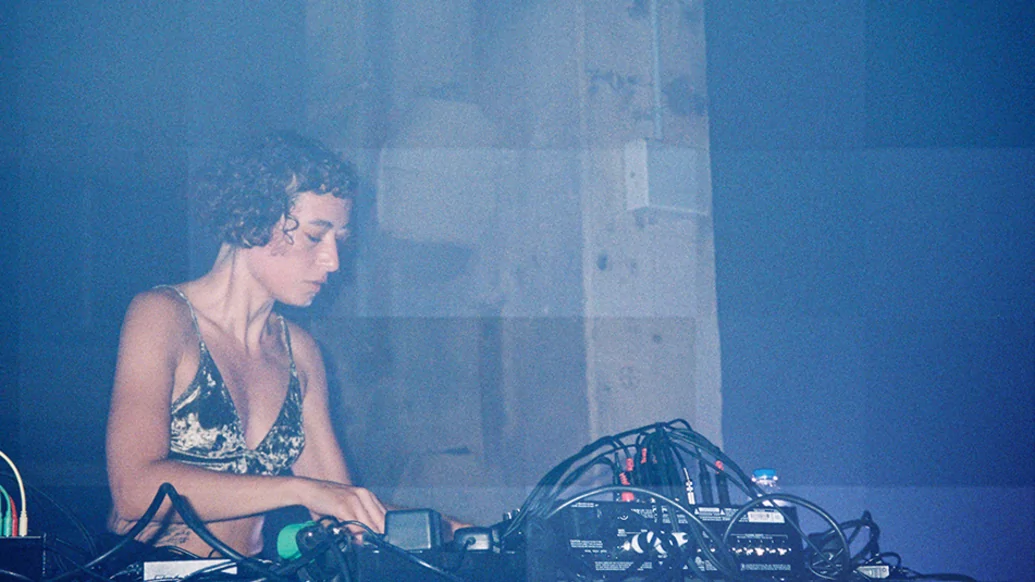
Aydin’s father’s side of the family are from Azerbaijan, and were immigrants to Turkey. “They ran away from war, so they had a lot of traumas, but they still made things happen for themselves. All of them studied, they are in good places.” Her mother’s side of the family are from a little village in the Black Sea region.
“My mom wasn’t allowed to study and her parents were very protective. They were very Muslim and traditional,” she remembers. Aydin impresses on us how supportive both her parents have been of her: “My mom and dad were always like best friends... They have always been amazing at following my things.”
After leaving the Izmir State Conservatory, Aydin moved to Stuttgart in 2007 to take the next step in her classical studies. She’s lived in Germany ever since, but it hasn’t been easy. “When studying here as a Turkish girl, there was a little bit of racism and a lot of sexism,” she says. The classical world that she’s become so invested in left her wanting more, too. “I didn’t feel like I belonged in classical music, and I realised that this very elitist thing didn’t fit my character. At some point, I saw that I wasn’t going to please people, and that I wasn’t prepared to work eight hours a day, every day, just to play one concert.”
Still, she knew music was her path. When she opted to take composition lessons as part of her degree, she started dabbling in experimental electronic forms; six years later, after toughing out her studies, her curiosity for electronic music led her to Berlin.
“I came here to Berlin, to be among all of this!” she laughs, about the club scene. “I was 26 years old when I discovered this world, and people usually find it when they’re teenagers. It was crazy to me!"
“I would always go to Berghain when the female DJs would play,” she continues. “It didn’t matter if it was upstairs in Panorama Bar or downstairs in the main club, I always wanted to get inspired by them. There were all these different genres I was getting interested in, and I was going to check out more specific names, looking at how they mix and stuff; it became very nerdy.”
Despite all of this fresh inspiration on her doorstep, Aydin didn’t jump straight into electronic production right away. “The classical part of me was a burden, my brain is so analytical,” she says. “I’d go to a party and I’d be standing there thinking, ‘Okay, this is a minor, okay, this is a...’ — you can’t really get rid of that way of thinking about music.”
There was also the personal and social expectation of wanting to make her studies work for her. Aydin credits her inner nerd as her saving grace and that despite the pressure, she’s proud of what she’s achieved since leaving Turkey. “I would have never come this far, mentally, if I lived in Turkey all my life. I would probably be sitting with three kids right now.”
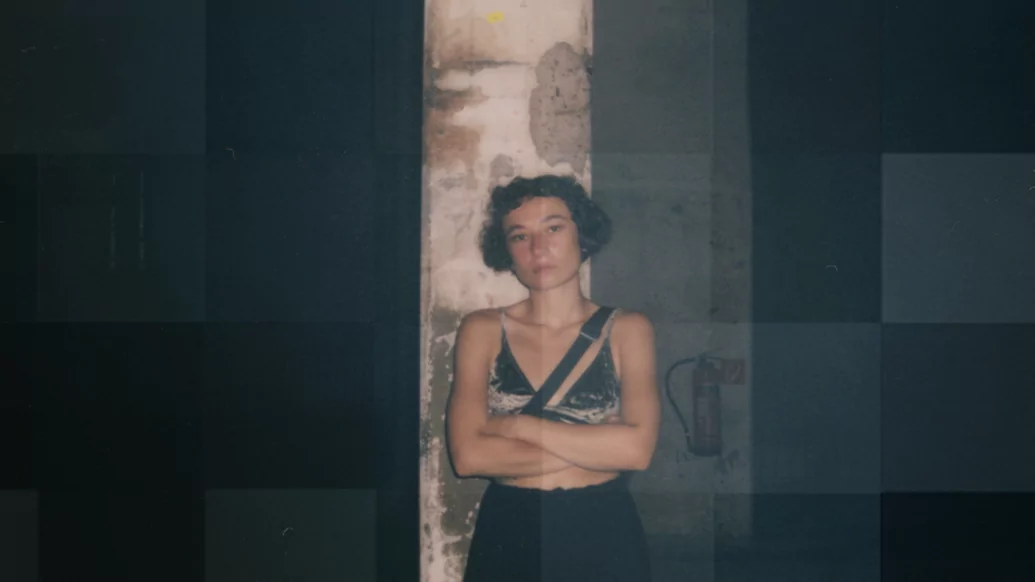
In 2019, Aydin’s beloved father passed away, after a heart attack and three month-long coma. He was just 55 years old. Her debut album, ‘Ali يلع’, released this July through the Incensio label, is a tribute to him; charting the period leading up to his death, and her later, ongoing process of mourning. During her father’s coma, Aydin was trying to manage her duty of care to him, while answering to work and music. “While he was in a coma, I was still playing techno and going to clubs. I was going to the Intensive Care Unit to be with him then flying out for gigs, coming back to Turkey every week. It was very complicated, but I felt like I had to keep going.”
Across the album, Aydin touches on the core, cultural elements of her life. There’s the traditional instrumentation she was brought up with, woven into a trap-style swagger on tracks like ‘Lament’. She also layers her vocals into her beats, in two different languages: her native Turkish, on ‘Rau’, and her second language, German, on ‘Reue’.
“I want to be daring. Sometimes the biggest thing for me is accepting it’s not always going to be good. Everybody waits so long just to bring something out; especially as women, we have to think about things 10 times more,” she continues. “We’re always waiting for the perfect track to come but, honestly, it might never come! Now, I try to be less in my head and just jump into things.”
Regardless of how far she’s travelled, physically and emotionally, Aydin’s discography and live performances are permeated with her connections to her memories of, and love for, the people and cultures of Eastern Europe. “There’s a lot of stigma and wrong ideas about our cultures,” she insists.
“In the past, I tried to fade and fit in, but now I’m like, ‘This is what you get’. I can’t change,” she reasons, “and I want people from these regions to be represented. We are always trying to erase ourselves. We look to the West as the right way to be, and we can be hateful about our cultures. With my music and performances, I don’t want to just serve the privileged, hedonistic culture [of Western dance music]. I want to keep my culture at my core.”
